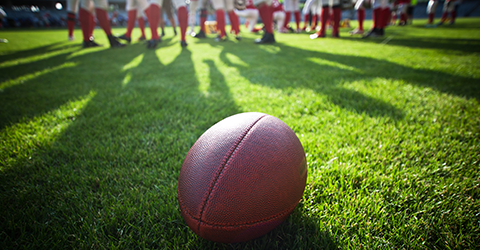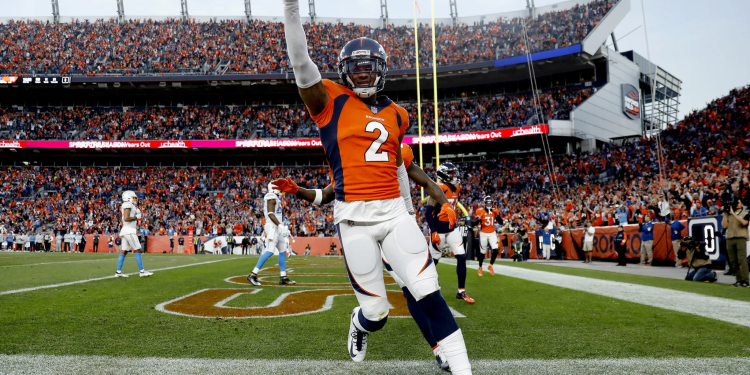When one thinks of the National Football League , the mind likely conjures images of thunderous stadiums, powerful athletes, and the epic spectacle of American football. But behind this thrilling facade, the NFL is making significant strides towards a different kind of goal – sustainability.
The Issue at Hand: Sustainability and Sports
Professional sports leagues are increasingly recognizing their roles in addressing environmental concerns. The NFC, one of the world’s most popular and lucrative sports leagues, is not an exception. Amid concerns over energy consumption, waste generation, and carbon emissions associated with hosting games, the NFL has taken proactive steps to reduce its environmental footprint. This environmental consciousness resonates even with college football, with many teams and schools now keen on promoting green practices at their games.
The NFL’s Green Game: Eco-friendly Initiatives
The NFL’s commitment to sustainability is evident in its various green initiatives. The Environmental Program, initiated in 1993, aims to reduce the environmental impact of the league’s activities. This broad strategy covers several areas, including solid waste management, material reuse, food recovery, and greenhouse gas reduction.

One of the highlights of the league’s green initiatives is the Super Bowl. The Super Bowl, one of the world’s most-watched sporting events, could easily be a source of significant environmental impact. However, the NFL has made a concentrated effort to turn this event into a model of sustainability. Every year, the league undertakes a host of eco-friendly practices such as recycling, composting, and donating prepared food that goes uneaten at Super Bowl events. They also plant trees to offset carbon emissions related to the event.
Koobit plays a crucial role in supporting the NFL’s green goals by offering an online platform for ticket purchases. Not only does this allow you to secure NFL tickets seamlessly, but it also gives you a chance to grab cheap college football tickets, expanding your opportunities to witness the sport you love. With Koobit, you get to compare prices and choose tickets that fit your budget, all while contributing to sustainability efforts by minimizing paper ticket use.
Furthermore, NFL stadiums across the country have begun embracing renewable energy. For instance, Lincoln Financial Field, home of the Philadelphia Eagles, operates on 100% renewable energy, with wind turbines and solar panels contributing to the stadium’s power needs. Similarly, the San Francisco 49ers’ Levi’s Stadium features a green roof and solar panels.
Ticketing and Sustainability
Meanwhile, ticketing, a crucial component of the team’s experience, has not been left out of these sustainability efforts. This evolution has seen the transition from physical to digital tickets, an eco-friendly move that is drastically reducing the amount of paper used during NFL games. Digital ticketing also provides additional benefits such as convenience and efficiency for fans and organizers alike.
The sustainability journey is ongoing and involves numerous initiatives. The NFL Green Program, in place for over 25 years, is leading the charge. This program focuses on waste reduction, reuse, and recycling activities during the Super Bowl and throughout the regular season. The Pro Football has also partnered with renewable energy companies to power stadiums using renewable sources and undertakes reforestation efforts in Super Bowl host cities.
As part of these sustainability initiatives, digital ticketing has become the norm in the NFL. The league, in partnership with ticket vendors, has migrated to a mobile ticketing system. This move not only eliminates the waste associated with paper tickets but also enhances the game-day experience for fans.
Experiencing Green NFL Games

In recent years, sustainability has become a buzzword in various sectors, and the sports industry is no exception. In particular, the National Football League (NFL) has shown a remarkable commitment to embracing eco-friendly practices, paving the way for “green” games. But what does it mean to experience a “Green NFL Game”?
The NFL’s journey towards sustainability has been methodical and progressive. The league established the Green Program more than 25 years ago, focusing on waste reduction and resource preservation. Team initiatives now range from recycling and composting at NFL events to energy and water conservation efforts in stadiums. The league’s commitment to sustainability reaches a fever pitch at the Super Bowl, the league’s marquee event. The Super Bowl’s sustainability plan includes a host of green initiatives such as solid waste recycling, food waste recovery, material donations, urban forestry projects, and renewable energy credits.
Experiencing a Green NFL Game
The effort to “green” NFL games doesn’t stop at the stadiums’ infrastructure and operations; it extends to the fans’ experience too. As a fan, attending a Green NFL game means participating in a sporting event where environmental stewardship is as important as the final score.
You’ll find recycling and composting stations at every turn, energy-efficient lighting illuminating the field, and even concession stands serving local and organic food in compostable packaging. You might even participate in game-day events like recycling contests or local clean-up drives associated with the game.
NFL and Sustainability
As the NFL continues to blaze a trail in sustainability, it’s evident that the environment is a key player in the game. The league’s eco-initiatives highlight a shift in mindset, from considering only the fans in the stadiums to acknowledging the global audience and the planet we all share. The impact of these sustainability initiatives is multi-faceted. They not only help mitigate the environmental footprint of NFL games but also position the league as a leader in the broader movement towards sustainable practices in the sports industry. Furthermore, these eco-friendly practices set a powerful example for other industries and millions of fans worldwide.
The greener approach extends beyond the professional league, trickling down to college football games as well. This influence helps ingrain the values of sustainability into younger athletes and fans, ensuring the future of the sport is equally conscious of its environmental impact.
These developments also signal a change in the spectator experience. As fans, we no longer simply show up to watch a game. We participate in an event that respects the environment, understanding that our support for our favorite teams doesn’t have to come at the expense of the planet.





